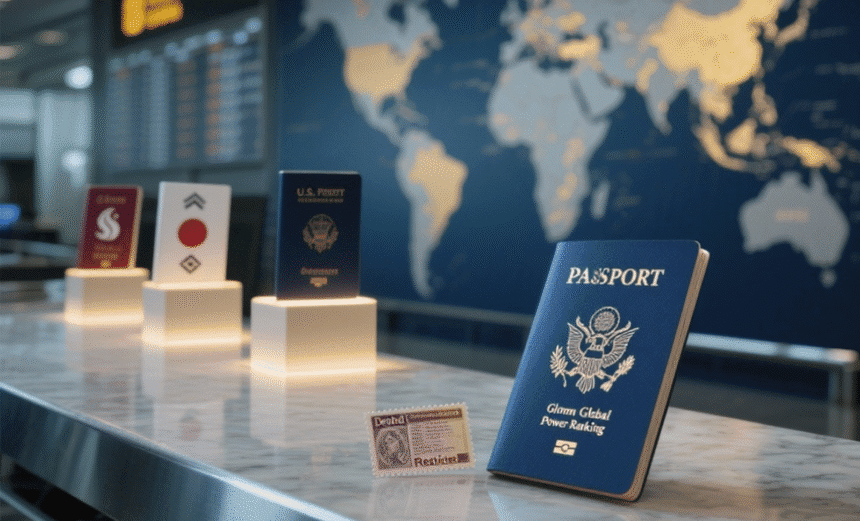On October 15, 2025, the United States officially fell out of the top ten in the annual Henley & Partners Passport Index, marking the first time in twenty years that the U.S. passport has not been ranked among the world’s most powerful. The London-based index, which measures the number of destinations passport holders can access without a prior visa, placed the U.S. in 12th position this year, tied with Malaysia. American passport holders now enjoy visa-free or visa-on-arrival access to 180 destinations, a sharp contrast to Singapore, which leads the 2025 list with access to 193 destinations, followed by South Korea with 190 and Japan with 189.
The U.S. passport’s decline is more than a matter of travel convenience. Analysts and experts describe it as a reflection of shifting global dynamics in diplomacy, soft power, and openness. Christian H. Kaelin, chairman of Henley & Partners, said the U.S. drop “signals a fundamental shift in global mobility and soft-power dynamics,” underscoring how changing international relationships directly impact citizens’ freedom to move. In 2024, the United States still held 10th place; in 2023, it ranked seventh. Its slide to 12th this year represents a symbolic and practical weakening of what was once considered one of the world’s strongest passports.
A closer look at the data shows the imbalance that partly caused the slip. While the U.S. passport allows travel to 180 destinations without a prior visa, only 46 nationalities can enter the United States under the same conditions. This lack of reciprocity has become a sticking point in bilateral travel agreements. Some countries have responded by tightening their entry rules for U.S. citizens. Earlier this year, for instance, Brazil reinstated visa requirements for American travelers, citing the absence of reciprocal treatment. Similar moves by other nations have gradually eroded the advantages once enjoyed by U.S. passport holders.
Experts attribute the decline to several interconnected reasons. First, America’s travel and immigration policies have grown more restrictive over the past decade, particularly with respect to visa, student, and work entry regulations. These measures, initially implemented for national security and economic reasons, have limited the flexibility of reciprocal travel arrangements. Second, other nations have increasingly prioritized openness and cooperation, expanding visa-waiver programs and mobility agreements, while the U.S. has been slower to adapt. Third, broader geopolitical trends have redefined “passport power,” rewarding countries that foster global partnerships and penalizing those perceived as insular.
The fall in ranking also carries strategic implications. The Henley Passport Index is widely used by investors, diplomats, and migration experts as a measure of global influence. A lower U.S. ranking suggests reduced soft power and waning leverage in diplomatic and mobility negotiations. Some analysts predict that more Americans may now explore dual citizenship or second passports to maintain travel flexibility, a trend already growing among frequent international travelers. Travel advisors note that the shift has also sparked renewed awareness among Americans of the limitations they face compared to citizens from nations such as Singapore or Japan, whose passports open doors to nearly every country in the world.
Beyond symbolism, the decline underscores a broader message about global mobility. Countries that embrace openness, negotiate reciprocal agreements, and foster international cooperation are gaining ground. Those who rely on historical dominance are seeing their advantages fade. “Nations that embrace cooperation are surging ahead, while those resting on past privilege are being left behind,” one global mobility analyst told The Washington Post. The U.S. example serves as a reminder that travel freedom, like economic or diplomatic power, can no longer be taken for granted.
Whether the U.S. can reclaim a top-ten spot depends on future policy decisions. Rebuilding reciprocity, expanding visa-waiver partnerships, and simplifying entry processes for other nationals could gradually restore its position. But experts warn that regaining lost ground will take time. For now, America’s 12th-place finish marks a clear turning point, both a symbolic and practical signal that the landscape of global travel power is evolving.












